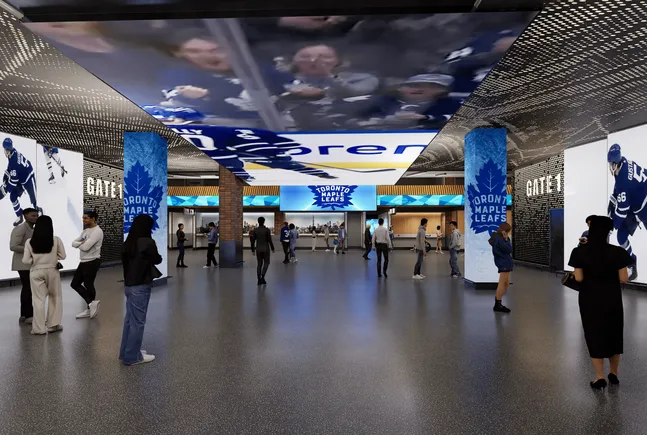Greg Weimholt, a construction veteran with 30 years of design and construction experience, has seen the mission critical sector develop.
Weimholt, the new national director of data centers and mission critical for Canada-based construction giant PCL, whose U.S. headquarters are in Denver, leads the vertical at a time when data center work is in high demand and a host of problems — staffing, material bottlenecks and equipment hold-ups — plague firms at every turn.
Here, Weimholt talks with Construction Dive about how to stay ahead of supply issues, how to maintain a competitive edge and what draws workers to the firm.
Editor’s Note: This interview has been edited for brevity and clarity.
CONSTRUCTION DIVE: A lot of contractors are in the data center space right now. How is PCL maintaining its competitive edge?
GREG WEIMHOLT: We’ve been doing mission critical for probably more than 20 years, but now there’s a very direct, enhanced focus on making this a successful group.
We’ve been around since 1906 so almost 120 years. We’re a high-quality builder, very technical builder and the product type fits us. That’s the first component.

Greg Weimholt
Courtesy of PCL Construction
The second component is that we have more to offer than the vast majority of other general contractors. Very few general contractors, if any, can offer all of the same services that we can in addition to building the building, and that includes nuclear.
Our water division is already working directly for hyperscalers, in the eastern half and the northern part of the U.S., where they use water cool chillers, or evaporative cooling, instead of air-cooled chillers, which are more common in the drier climates.
We have a very large solar group and Battery Energy Storage System, BESS, they do battery plants.
It’s a service offering that, again, not everybody is going to take because it all comes down to cost, how quickly we can deliver and who’s going to pay for it.
Talent is a big concern right now. How is PCL recruiting and retaining workers?
PCL is a 100% employee-owned company, and that was a big driver of why I came here. It changes your perception, I think, of your job and its meaning and your focus. From what I’ve found in my time here, it seems like there’s a much more defined commitment to success, if you will, throughout the organization.
I’ve been with other general contractors, and I feel like we are all good groups of people at the time doing good work, but from an overall organizational approach and perception, with the size of the company that it is, I think it’s a huge draw. You feel it from brand new project engineers, all the way up through people that have been with the company for 30-plus years.
It’s meaningful that, I would say, over half the people I’ve met have been with the company over 15 years. It’s something you talk about with new potential candidates, whether they’re out of college or they’re coming from other companies.
I think they can also feel it, the way I did, when you go to a jobsite with the team. Everybody operates as one fully integrated team. So I think that’s something that you can feel as a new recruit to the company.
How is PCL dealing with supply chain and equipment issues, and how do you mitigate those effects?
Cloud compute has been growing pretty substantially the last two years. That’s what’s driving the supply chain issues now — the significant growth between both cloud compute and artificial intelligence and everybody trying to get ahead of it.
It doesn’t matter how much money you pay. You tell a vendor you’ll pay extra, the other guy will pay $1 more, and it’ll just keep going and going and going. And the vendors themselves, the manufacturers, are struggling.
We actually were talking about this at a recent data center conference, where it was both PayPal and Stack Infrastructure, they’re actually looking at procuring.
It’s almost like a precast project, where you’ll reserve an eight-week production slot. What you’re building, you don’t know yet, but you’re reserving that production slot at the precast plant.
What else are you thinking about right now?
The other thing that I’ve advocated for — the data center market hasn’t historically been a prototypical design-build procurement approach.
The design-build approach is sometimes not the most palatable to an owner, because they want to make sure they’re getting competitive pricing. But the benefit of the design-build approach is that we can start looking at all of the equipment upfront, both owner-furnished and contractor-furnished, with the design team, with the owner.
We haven’t had too many issues with major site equipment. What we have had issues with are load banks.
You put the load banks out on the data hall floor to do the testing of the PDUs and the UPSs and the chillers in the HVAC system. If you have the busway that goes over the top of the racks installed, those are now 30, 40 weeks out, just because there’s so much testing going on, there’s so much data center construction, that the load banks are critical.
It’s not, historically, something we planned for early. That’s normally done nine months into the project.
One of the benefits of my having been on the design and subcontracting side is, I’ll actually put together a load bank plan that may or may not be what the commissioning agent wants, but it’s going to be very close, with only slight modifications.
I’ll put together the load bank plan when we’re pursuing a project so we can get accurate pricing, so I can tell the owner what we’re planning. If we need 10 more load banks or 10 less load banks, or whatever it is, early on in the process, we can show our plan, our clients will bless it, and we’ll slot those changes in.
